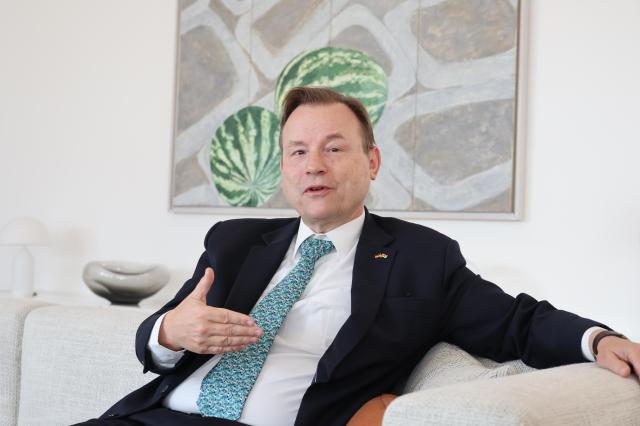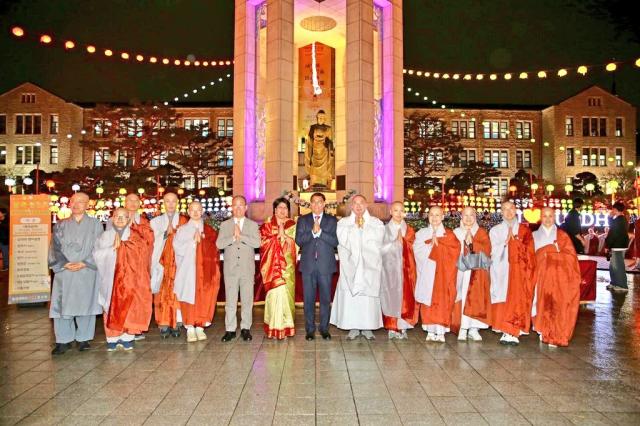
At his official residence in Seoul, German Ambassador Georg Schmidt began his talks by raising "Zeitenwende," which literally means "historic turning point." The term was first brought up by Chancellor Olaf Scholz, just three days after Russia's invasion of Ukraine on Feb. 24, 2022, when he announced plans to allocate a special one-off fund of 100 billion euros to strengthen the country's defense capabilities.
"After the outbreak of the war, Germany fundamentally shifted its security and fiscal policies under the concept of Zeitenwende," he said. "It was an awakening that we needed to confront the new realities of global security."
The fund, which required a constitutional amendment, "passed quickly with a two-thirds majority in each chamber," the ambassador recalled. "This kind of swift consensus is rare in the country's political history."
Earlier this year, Germany introduced what has been described as "Zeitenwende 2.0," which includes two large-scale projects, with about 500 billion euros allocated for defense while another 500 billion euros is earmarked for modernizing infrastructure and addressing climate change.
But Schmidt said part of the fund has been also deliberately set aside for regional governments. "That helps ensure that citizens do not feel the government is spending money solely to help Ukraine while neglecting its own people."
Germany's national debt is currently about 2.6 trillion euros or 63 percent of GDP. However, the debt-to-GDP ratio could rise to 90 percent, once the projects take shape.
"Germany has always valued fiscal soundness," he said. "But this is a moment in history that calls for bold action."
Asked about what led to such a swift political consensus, Schmidt cited two reasons. "First the country's tradition encourages political parties to cooperate on issues of national urgency. Second the pressing global situation made it clear that there is no time to waste."
Germany is now the top provider of aid to Ukraine among European countries. Along with military and financial support, Germany has accepted nearly one million Ukrainian refugees. "I believe that will eventually stimulate the domestic economy," he predicted.
As for the war in Ukraine, Schmidt clarified Germany's stance. "There can be no ceasefire or peace agreement without Ukraine's consent," he said. "Europe must also be involved in the negotiation process. Peace is not something we can rush."
Regarding the war in Ukraine, Schmidt clarified Germany's stance. "There can be no ceasefire or peace agreement without Ukraine's consent," he said. "Europe should be involved in the negotiation process to end the war. Peace is not something we can rush."
Meanwhile, Schmidt also expressed interest in further strengthening defense cooperation with South Korea, as Germany bolsters its defense sector, with automotive and arms manufacturer Rheinmetall hiring over 1,000 new staff this year alone. The country also recently passed one of the world's most progressive immigration laws for skilled workers to address labor shortages.
"South Korea is deepening its defense cooperation with Poland and increasing its presence in the European market," he cited as an example. "Since Seoul has previously procured German-made Taurus cruise missiles, there is a strong potential for mutual collaboration."
Looking ahead, Schmidt mentioned Friedrich Merz, a leading candidate for Germany's next chancellor, who recently voiced support for continuing the current government's Asia policy.
"That would be a positive sign," he said. "We hope our strategic partnership with South Korea continues to grow."
Copyright ⓒ Aju Press All rights reserved.





View more comments